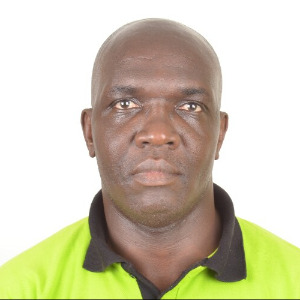Title : Dengue virus detection in Kenyan blood donors: Implications for transfusion safety
Abstract:
Background: Dengue virus (DENV) infection in blood donors poses a significant risk to transfusion safety because asymptomatic individuals may harbor the virus and transmit it through blood products. Globally, the prevalence of DENV markers in blood donors varies widely, reflecting regional endemicity and surveillance practices. For instance, studies have reported IgG seroprevalence rates of 24.8% and 38.9% in Cameroon and Saudi Arabia, respectively. In India, 1.2% of donors tested positive for the NS1 antigen during peak transmission periods, whereas in Saudi Arabia, NS1 positivity reached 5.3%, indicating active viremia in asymptomatic individuals. The global burden of dengue is substantial, with an estimated 390 million infections annually, of which approximately 96 million manifest clinically. The disease is endemic to over 100 countries, particularly in tropical and subtropical regions, and is primarily transmitted by Aedes aegypti mosquitoes. Factors such as urbanization, climate change, and increased human mobility have contributed to the expanding geographic range and intensity of dengue outbreaks. Routine screening for DENV in blood donation services is recommended in several endemic regions to mitigate the risk of transfusion-transmitted dengue. In Kenya, dengue is endemic to coastal counties, with Mombasa County experiencing recurrent outbreaks in recent years. Despite this, there are limited data on the prevalence of DENV among Kenyan blood donors, underscoring the need for targeted surveillance and risk assessment.
Objective: To determine the prevalence of dengue virus markers among blood donors in Kenya and assess their implications for transfusion safety.
Methods: A descriptive cross-sectional study was conducted among blood donors in Nairobi and Mombasa counties. Participants completed self-administered questionnaires, and serum samples were screened for DENV IgG, IgM, and NS1 antigens using the Bioline™ DENGUE DUO rapid test (Abbott, USA). Selected positive and randomly chosen negative samples were further analyzed at the Kenya Medical Research Institute (KEMRI) for DENV RNA and serotyping using the Bosphore Dengue Virus Detection Kit v1 (Anatolia Genework, Turkey) and an ABI 7500 FAST Dx thermocycler (Applied Biosystems, USA). Data were analyzed using IBM SPSS Statistics v20.0, with chi-square tests applied to assess associations at the 95% confidence level.
Results: The majority of donors were males aged 21–30 years (70.9%). The overall IgM seroprevalence was 6%, with significant variations according to location, sex, and religion. Mombasa County exhibited higher seroprevalence rates (IgM: 13%, IgG: 25%, NS1: 2%) compared to Nairobi (IgM: 2%, IgG: 5%, NS1: 0%). All 35 samples subjected to molecular testing tested negative for DENV. Statistically significant associations were found between dengue seropositivity and donor location (p = 0.002), recent fever (p = 0.001), and cohabitation with a dengue patient in the past six months (p = 0.007). No significant associations were observed with other demographic variables.
Conclusion: This study confirmed the presence of DENV IgG, IgM, and NS1 markers in blood donors in Kenya, particularly in Mombasa County. Although active viremia was not detected, these findings highlight the potential risk of transfusion-transmitted dengue. Further research is warranted to inform policies on routine DENV screening in blood donation services, especially in the endemic regions of Africa.



